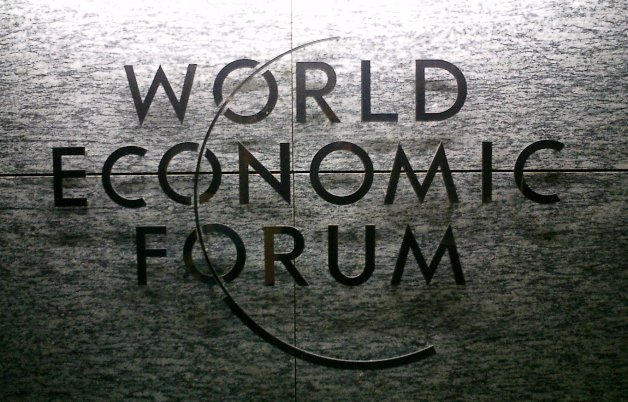So day two has started here at the World Economic Forum and the session I’m currently attending is entitled “Stability in the Broader Middle East: Who is taking the lead”. A few meters away, on the stage, is Hamid Karzai (Pres. of Afghanistan), Shaukat Aziz (PM of Pakistan), Marouf Bakhit (PM of Jordan), H.H. Sheikh Salman Bin Hamad Al Khalifa (Crown Prince of Bahrain), Manouchehr Mottaki (Minister of Foreign Affairs, Iran) and H.R.H. Prince Turki Al Saud (Saudi Arabia).

The idea of the session is discuss the movement of the international powers towards scaling back their involvement in the region, leaving a space (or opportunity) for regional leaders to step up and solve their own issues.
From a personal perspective: this is actually the first time I see Prime Minister Marouf Bakhit speaking in English and while he isn’t the most eloquent speaker he is fairly and surprisingly articulate.
Raghida Dergham, Senior Diplomatic Correspondent for Al Hayat is chairing the session and judging by her questions and her methods of pressing for an answer, she seems fitting.
All the participants on the stage, as you can see from the line up, are more or less repeating each other. In terms of how they view the conflicts. Resolving the Palestine conflict is at the forefront of resolving all our other macro-regional problems. But here’s where the tides of this session began to turn a little…
Mrs. Dergham asked Iran’s Minister of Foreign Affairs, Mottaki: “Is Iran a supporter of the Arab Initiative; a two-state solution?”
He responded by saying:
“The question is why all of these plans and initiatives could not meet, could not realize? Despite of the goodwill of some countries to protect the right of the Palestinian, we do believe that either due to the plans or due to the other side’s approach, all those plans were failed. If we talk based on realities I do not see any chance for the three important elements which were mentioned in this plan. Not for the capital of the Palestine. Not for the returning of the refugees, which is up to 5 million Palestinians. Due to the other sides of the approach.
Our position in this issue is well known by all the countries in the region. we do not recognize the regime legally…But at the same time we have the plan to solve the problem basically on justice, based on all people in the region…”
Mrs. Dergham replied by quoting Saeeb Erakat’s conversation with a member of the Iran delegation yesterday at the WEF, when he said: “Sir, we need help from Iran to put Palestine on the map instead of talk of removing Israel from the map”. So is Iran rejecting the Arab Peace Initiative simply because it accepts a 2-state solution, or simply because it’s Arab?
H.R.H Prince Turki, Chairman of the King Faisal Center for Research and Islamic Studies in Saudi Arabia, stated that the realistic question to pose is why Iran should be involved at all. After all, this is an Arab issue and should be resolved within an Arab context.
However it should be noted that half of the panel members today are non-Arab, but all Muslim. So the issue has been floating back between “it’s an Arab issue” to “it’s a Muslim issue”.
Karzai and Shaukat Aziz are honestly the coolest cucumbers and I’ve noticed that during other times I’ve seen them speak on TV. It’s almost like they haven’t noticed the conditions of their country. I’ve never seen two countries who talk so much to the international community about being anti-terrorism while doing so little about the tremendous rise of terrorism and Islamic extremism in their countries.
But all in all, this session seems to focus a lot on pressing Iran about their (undesirable) intervention in the region. No one up on the stage right now is showing Iran any love.
I’ll be back for more. H.H. Sheikh Mohammed Bin Rashid Al Maktoum is about to take the stage for the next stage.




